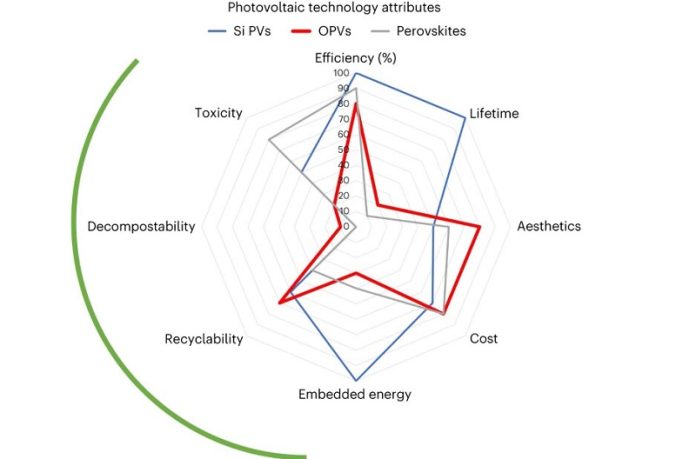
In an era where technology is growing leaps and bounds, it’s important to think about how this growth affects our planet.
Researchers from Friedrich-Alexander University (FAU) in Germany, along with scientists from the UK and US, are pushing a greener way of developing organic electronics.
Their findings were recently published in the prestigious journal, Nature Materials.
What’s an organic electronic, you ask? Think of items like solar panels, television screens, or computer monitors, but instead of being made from precious or toxic metals like platinum or silver, they’re created from carbon-based materials.
This makes them more environmentally friendly, flexible, and applicable in a wider range of uses.
It sounds great, right? But, there’s a catch. As Professor Dr. Christoph Brabec, from FAU and the Helmholtz Institute Erlangen-Nürnberg for Renewable Energy (HI ERN), explains, the rapid growth in organic electronic technologies, like OLED screens, can cause problems.
Even if the technology inside is eco-friendly, it doesn’t mean the whole device is. For example, imagine a t-shirt with sensors embedded in it.
These organic sensors have a short lifespan, and when the t-shirt is no longer usable, we face the issue of recycling or disposing of it in an eco-friendly manner.
The solution, according to Prof. Brabec, is to ensure these products leave as little environmental footprint as possible throughout their life, from creation to disposal.
To make this happen, scientists are proposing new materials and more efficient production methods that consume less energy and don’t harm our environment.
They are also considering replacing the precious metals in OLED screens with organic materials, making these devices more sustainable.
Alongside making the production process greener, researchers are also focusing on making the materials themselves last longer and easier to protect. By creating more robust materials, we can use less and save on energy.
But that’s not all. To truly gauge how green organic electronics are, we need to consider their entire life, from creation to disposal.
It’s true that organic solar panels currently don’t perform as well as traditional silicon ones, but they produce 30% less CO2 during manufacturing. In terms of lifespan, even though silicon panels last longer, they are harder to recycle.
As we move forward, Brabec suggests the focus on biocompatibility and biodegradability, which means making things that can be recycled easily or break down naturally.
In other words, even in the lab, scientists should plan how a product will be recycled after its useful life. This approach will be crucial in making organic electronics a significant player in the move towards renewable energy.
Follow us on Twitter for more articles about this topic.



